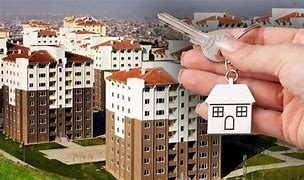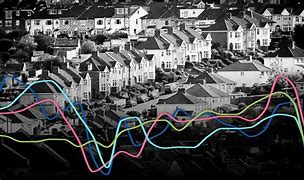
Alright, buckle up buttercups, because we’re diving headfirst into a topic that’s affecting us all: the global housing market & its tumultuous tango with the economic downturn! It’s a rollercoaster, folks, a wild ride of rising interest rates, inflation anxieties, & a general sense of “what in the world is happening?!” We’ve all felt the pinch, right? From the ever-increasing price of groceries to that slightly-less-than-thrilling number on your latest credit card bill, economic instability casts a long shadow. But how exactly is this impacting the place we call home – our housing market? The answer, my friends, is complicated, multi-layered & frankly, a bit terrifying if you’re not paying attention.
This isn’t just about million-dollar mansions in Malibu suddenly losing a few zeroes; this is about the ripple effect across the globe. Think of it like this: a single pebble dropped into a calm pond creates concentric circles that spread outwards, right? That pebble is the economic downturn; the ripples are the consequences felt in every corner of the housing market, from luxury penthouses to humble apartments. Are you planning to buy your first home? Or maybe you’re a seasoned investor looking for lucrative opportunities? Regardless of your position in this grand real estate game, understanding this current climate is absolutely crucial. The implications aren’t simply limited to fluctuating property values; they deeply affect mortgage rates, rental costs, construction projects & even the psychological well-being of homeowners & prospective buyers alike!
We’ll be dissecting the major forces at play, peeling back the layers to expose the heart of this matter. We’re talking soaring interest rates that are making mortgages a tougher pill to swallow – leading to less buyers, & fewer houses being sold. This also impacts rental markets; with decreased purchasing power, more people are sticking to renting and even competition in the rental market is driving costs up!. Simultaneously, inflation is wreaking havoc on construction costs, leading to increased delays in building new housing projects. In turn this limited supply intensifies the competitive pressure among buyers who are then competing for already very limited options, forcing prices to rise – creating a vicious cycle! It’s a complicated stew of financial pressures, governmental policies, & fluctuating global events; and believe me , unpacking this requires more than just a cursory glance!
So, if you’re ready to unravel the mysteries of the global housing market & the economic downturn’s effect upon it, grab your favorite beverage & settle in. Over the next few sections, we will analyze various case studies across different countries, providing real-world insights into this complex situation. This isn’t just dry economic jargon; we’ll bring the analysis to life & reveal what you really need to know to make informed decisions in this unstable environment, ensuring that you’re armed with knowledge to make your best next move. So , are you ready ? Let’s get started!
How the Global Housing Market is Affected by the Economic Downturn
Related Post : The Global Energy Crisis: What’s Behind the Rising Energy Prices?
The global housing market, a significant indicator of economic health, is profoundly impacted by economic downturns. Understanding this relationship is crucial for both homeowners and investors. This article explores the intricate connection between economic instability and the fluctuations in the housing market, examining the causes, impacts, and potential strategies for navigating these turbulent times.
What is an Economic Downturn and How Does it Happen?
An economic downturn signifies a period of decline in economic activity, typically characterized by decreased consumer spending, reduced business investment, and rising unemployment. This decline can manifest as a recession (a significant decrease in economic activity lasting more than a few months) or, more severely, a depression – a prolonged and deep recession.
Defining Economic Downturn: Recession vs. Depression
The distinction between a recession and a depression lies primarily in duration and severity. Recessions are typically shorter and less intense, while depressions are characterized by prolonged economic hardship, high unemployment, and significant deflation.
Identifying the Early Warning Signs of an Economic Downturn
Recognizing early warning signs is crucial. These can include slowing GDP growth, falling consumer confidence, rising inflation, increasing unemployment claims, and a decline in the stock market. These indicators often precede a more significant economic downturn.
Causes of Economic Downturns: Global Factors and Local Impacts
Economic downturns are multifaceted, stemming from a confluence of global and local factors. Global events like financial crises, pandemics, and geopolitical instability can trigger widespread economic contractions. Local factors, such as unsustainable government policies or regional economic shocks, can also contribute.
The Impact of Economic Downturn on the Global Housing Market
Economic downturns significantly affect the housing market. The impact is far-reaching, affecting various aspects of the sector.
Reduced Housing Demand During an Economic Downturn
As economic uncertainty rises, consumer confidence wanes, leading to reduced demand for housing. People become more hesitant to make large purchases like homes, opting for financial stability instead.
Price Decreases in the Housing Market Due to Economic Slowdown
Reduced demand inevitably leads to price decreases. The supply of available homes might even increase as people are forced to sell due to financial hardship.
Increased Foreclosures and Bankruptcies in the Housing Sector
Economic downturns often result in increased foreclosures and bankruptcies, particularly in sectors heavily reliant on mortgages and construction. This further destabilizes the market.
Impact on Rental Markets During Economic Uncertainty
Rental markets also experience impacts. Vacancy rates may increase, and rental prices might adjust downwards as demand softens.
Specific Examples of Global Housing Market Impacts
Analyzing past events helps us understand current trends.
Case Study 1: The 2008 Financial Crisis and its effect on the US Housing Market
The 2008 crisis dramatically demonstrated the housing market’s vulnerability to economic shocks. The subprime mortgage crisis led to widespread foreclosures and a significant decline in housing prices.
Case Study 2: The impact of the 2020 Pandemic on Global Housing Markets
The COVID-19 pandemic created a unique situation. While some markets experienced initial declines, others saw surprisingly resilient performance due to shifting work patterns and low interest rates.
Case Study 3: Regional variations in Housing Market Responses to Economic Downturns
The impact of economic downturns varies regionally. Local economic conditions, demographics, and government policies influence the severity and duration of the impact.
How Different Housing Markets Respond to Economic Downturns
The response varies considerably between developed and developing economies, luxury and affordable housing segments.
Developed vs. Developing Economies: Contrasting Responses
Developed economies tend to have more robust safety nets and regulatory frameworks, leading to less volatile responses. Developing economies are often more vulnerable.
Impact on Luxury vs. Affordable Housing Segments
Luxury housing is often more susceptible to economic downturns, while affordable housing may experience a slower decline, particularly in areas with strong rental demand.
The Role of Government Intervention in Stabilizing Housing Markets
Government interventions, such as tax incentives, loan guarantees, and monetary policy adjustments, play a crucial role in stabilizing housing markets during economic downturns.
Investing in Housing During an Economic Downturn: Risks and Opportunities
Investing in housing during a downturn presents both risks and opportunities. While prices may be lower, the risk of further declines and reduced rental income exists.
Is it a good time to buy a house during an economic downturn?
This depends on individual circumstances and risk tolerance. Careful analysis of market trends and financial stability is essential.
The potential for increased returns on investment after a downturn
Historically, downturns are followed by periods of recovery, presenting opportunities for increased returns on investment for those who can weather the storm.
Mitigating Risks When Investing in Real Estate During an Economic Slowdown
Diversification, thorough due diligence, and a long-term investment strategy can help mitigate risks.
Long-Term Effects of Economic Downturns on the Housing Market
Economic downturns leave a lasting impact, affecting housing preferences, demand, and market dynamics for years to come.
The cyclical nature of the housing market and economic recovery
The housing market, like the economy, is cyclical. Downturns are eventually followed by periods of recovery and growth.
Long-term shifts in housing preferences and demand post-downturn
Economic downturns can lead to long-term shifts in housing preferences, impacting demand for specific housing types and locations.
Potential for market correction and stabilization
Over time, the market typically corrects itself, leading to stabilization and renewed growth.
What can you do to protect your investment during an economic downturn?
Homeowners and investors should diversify investments, manage debt effectively, and maintain a healthy emergency fund.
Strategies for homeowners to navigate economic instability
Homeowners should consider budgeting, exploring refinancing options, and prioritizing essential expenses.
Protecting your rental property investment during an economic downturn
Landlords should focus on tenant retention, diligent property maintenance, and effective financial planning.
Conclusion: Navigating the Uncertainties of the Global Housing Market and Economic Downturn
Navigating the complexities of the global housing market during economic downturns requires careful planning, informed decision-making, and a long-term perspective. By understanding the interplay between economic factors and housing market dynamics, individuals and investors can better position themselves to weather economic storms and capitalize on emerging opportunities.
